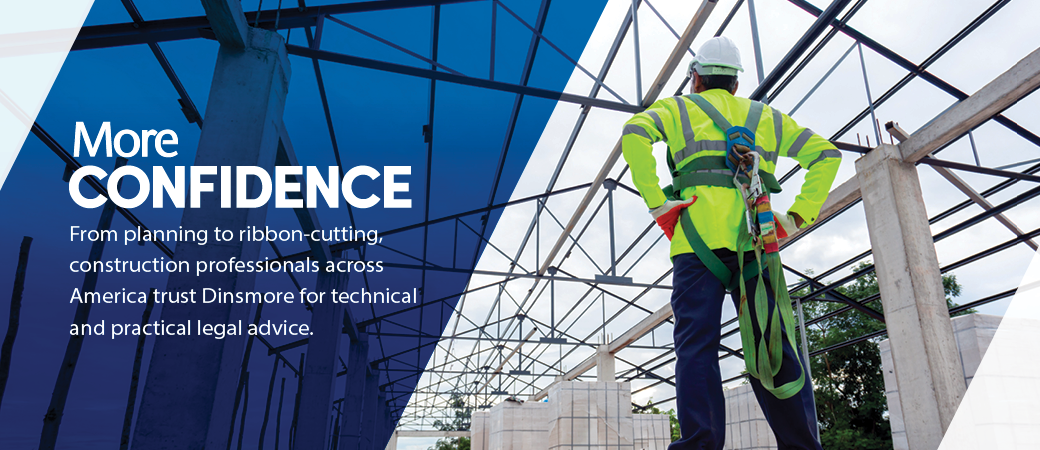Top 50 Construction Law Firm

For the third consecutive year, Dinsmore has been named a 2023 “Top 50 Construction Law Firm” by Construction Executive Magazine. Dinsmore ranks 30thin the country, up nine spots from 2021 when the Firm first made the list.
The list is based off results from a survey sent to more than 600 U.S. construction law firms.
Dinsmore represents owners, contractors, construction managers, subcontractors, sureties and other suppliers and professionals working in the industry. As the construction practice group continues to grow, it has established itself as a thought-leader for construction legal issues.
Construction Industry Insights From Our Attorneys












